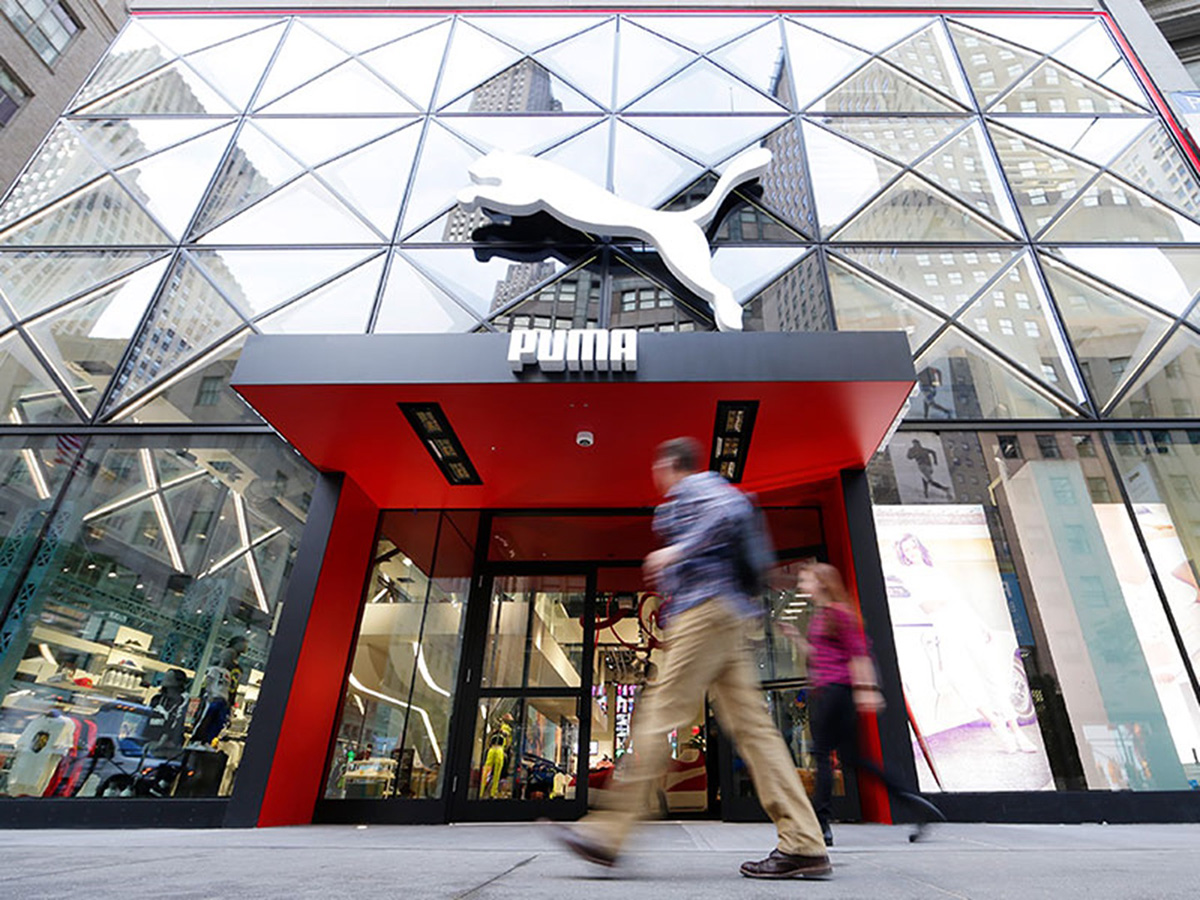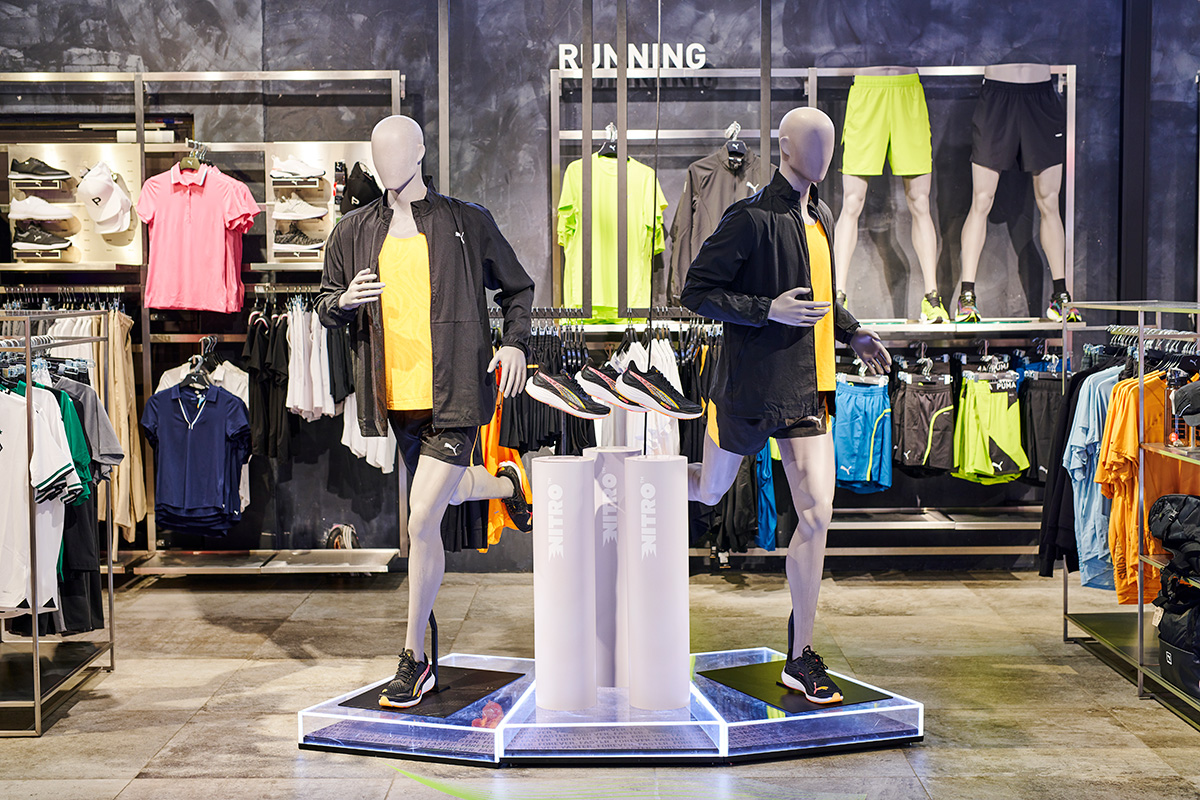Smart, safe, and always a step ahead: the PUMA way to data governance

At the recent CDQ Data Sharing Community Workshop, we had the pleasure of hearing from Jonas Gubo, responsible for Governance Processes at PUMA Group. Known for their energy both on and off the field, PUMA's approach to data governance mirrors the company's drive: pragmatic, focused, and agile.
Just like their athletes, PUMA knows how to stay ahead by leveraging the right tools and workflows that keep them moving fast (and safe).
Bold moves, flawless data
At PUMA, they believe in making bold moves - whether it's launching the next sneaker line, opening a new flagship store, or ensuring their business partner data is flawless. Jonas introduced ARGOS, PUMA's in-house workflow and data management tool, which has one core mission: "Better safe than sorry."
The tagline may sound simple, but it's a philosophy that runs deep in PUMA's data management approach. As Jonas explained, “When it comes to our data, we don’t take chances. We make sure it's correct, reliable, and ready to power our business.” This approach drives PUMA's efforts to automate workflows, reduce errors, and, most importantly, create a safe and compliant environment for handling business partner data across the globe.

PUMA Flagship Store in New York City
With the integration of CDQ's data quality services, this philosophy is more than just theory. From tax ID checks to bank data validation and duplicate detection, CDQ helps PUMA ensure their data is as safe as it is valuable.
Striking the balance between global and local governance
One of PUMA's guiding principles is to remain agile across their global operations, where each region operates with a certain level of independence. Jonas pointed out that too much centralized control could hamper their speed and local effectiveness.
Yet, with ARGOS and CDQ, PUMA has struck a balance. They've centralized their most critical data processes (like onboarding suppliers and customers)) to maintain data integrity, while still allowing regions to adapt to local needs. Through a smart feature known as the "layer cake" architecture, PUMA can implement global standards for data governance, while also applying regional nuances when necessary, ensuring local requirements are respected without losing the benefits of global consistency.
This layered approach allows PUMA to roll out new data governance rules quickly and efficiently, whether they apply globally, regionally, or even at the country level. It's a perfect example of smart governance - centralized where it needs to be, but always flexible enough to adapt.
Seamless data validation with ARGOS and CDQ
One of the most impressive aspects of PUMA’s data governance approach is how CDQ features have been seamlessly integrated into their ARGOS project, making data validation robust and efficient. As Jonas explained, ARGOS uses a CDQ Lookup functionality that searches across multiple systems, including SAP and the CDQ data pool, whenever a business partner is created or updated. The system automatically checks the CDQ data pool and presents results with a similarity threshold of 90%, empowering users to either update an existing record or create a new one based on verified CDQ data. With just a click, information like addresses, tax details, and names are filled in automatically, streamlining data entry and minimizing errors.

To ensure the highest data quality, PUMA has implemented real-time validation through CDQ API. Before a user can submit a request, the system checks for any errors or warnings. Errors must be corrected immediately, while warnings are flagged for review, allowing the process to continue if necessary but still keeping the user informed of potential issues. Jonas noted that they’ve kept CDQ validation rules largely intact, tweaking only where necessary to meet PUMA’s specific needs - showing the flexibility and scalability of CDQ solutions.
Additionally, bank validations ensure that critical details like bank formats and checking digits are verified for accuracy. PUMA has also incorporated CDQ Trust Score, running reports to understand how this score can enhance decision-making around business partner data. While it’s not yet visible to users, PUMA is already exploring how to present this trust score effectively in the future.

PUMA Store in Herzogenaurach (Photo Credits: Christoph Maderer)
Automating for efficiency and fraud prevention
By automating these processes, PUMA has tackled two key challenges: reducing manual work and duplicate data entry across multiple systems. ARGOS now allows PUMA to store and manage data wherever it’s needed, while automation defaults commonly used values (such as specific entries for users in particular regions), further enhancing efficiency. Coupled with CDQ’s ability to catch fraud attempts early and improve master data quality, PUMA is taking its data governance to the next level, ensuring that every piece of information is accurate, trustworthy, and ready to power business operations worldwide.
Jonas is clear that PUMA’s success with their ARGOS and CDQ integration isn't just about having the right tools - it’s about making those tools work in the smartest way possible. PUMA’s approach is pragmatic: rather than striving for perfection immediately, they focus on incremental improvement by touching and cleaning business partner data every time it’s used. This ensures that PUMA’s master data quality improves over time, gradually leading to a clean system.
It’s a marathon, not a sprint
PUMA has demonstrated that data quality isn’t just a back-office function - it’s a key enabler of business success. As Jonas emphasized, “It’s not about trying to clean all our data overnight. It’s about building a system that gets cleaner with every interaction.” This long-term, pragmatic view of data quality shows how companies can evolve continuously without losing focus on the fundamentals.
As Jonas put it, “We all have unclean master data everywhere. With the help of CDQ, we’ve brought our master data quality to the next level.” For data management professionals, this serves as a reminder: data quality isn’t a destination. It’s a journey that requires the right partners and the right mindset.

PUMA SUEDE (Photo Credits: Christoph Maderer)
PUMA’s story is one of pragmatic innovation, where smart tools like ARGOS and CDQ come together to support the company’s global growth while maintaining a sharp focus on data accuracy and compliance. For data professionals passionate about creating real business value from data governance, PUMA’s approach offers a roadmap to success: stay agile, automate what you can, and always keep improving your data quality.

Get our e-mail!
Related blogs
Efficient mass-enrichment of business partner data in SAP MDG
Managing and enriching business partner data at scale is a monumental task for many organizations, particularly during mergers, acquisitions, or large-scale…
Global business insights with automated trusted data access
Accurate, reliable, and up-to-date business partner data is critical for everything from compliance and risk management to operational efficiency. However,…
Real-time data management: why accurate business partner data can’t wait
In today’s fast-paced, data-driven business environment, Master Data is more than just a collection of names, addresses, and numbers—it’s the very foundation…






